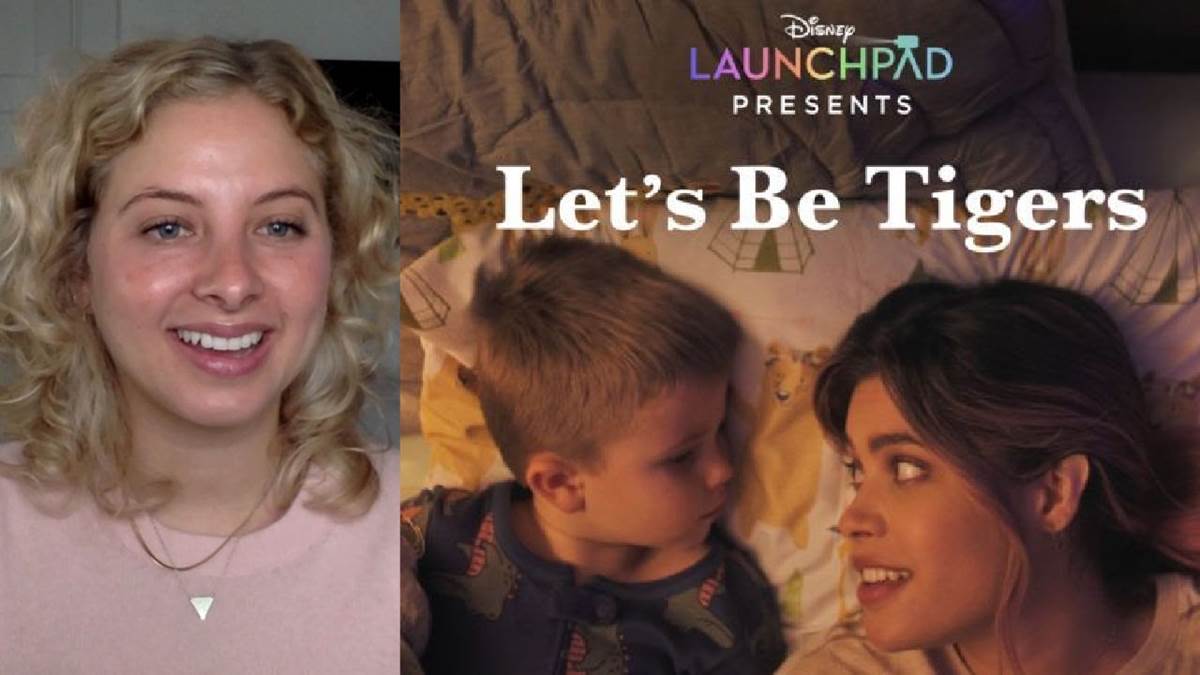Disney’s Launchpad program debuted on Disney+ on May 28th, offering six short films by directors from underrepresented backgrounds. The opportunity allowed Stefanie Abel Horowitz to write and direct her own story about grief with Let’s Be Tigers. I got to speak with Stephanie about her film and what inspired her to create it.
Alex: What was the inspiration behind Let's Be Tigers?
Stefanie Abel Horowitz: The inspiration was in my life at the time, my Zaide, which is my grandfather, was about to turn 100 years old and my parents were turning 70 and my nephew was turning four, and I was just thinking about the passing of the baton of life. I had actually been a babysitter in my early 20s and I babysat this wonderful kid, super smart, super loving, but one day he was trying to shoot me dead with his little finger gun. And I said, "Do you know what that means?" and he didn't, and I said, "If I was dead, I wouldn't be here anymore, and I wouldn't get to spend time with you." And he was really sad, as anyone would feel. And that made me think about the kind of big tragedy of our lives is that we're going to die. This is deep, I know, but we're going to die and everyone we know is going to die and we're going to have to experience sadness and loss over and over again. So, how do we deal with that in our culture? How do we share it and how do we talk to kids about it? And in a more deep and personal way to me, I'm the child of a therapist and I'm very good at listening and I'm less good at sharing, and I think the film wants to serve as a reminder that sharing your sadness, sharing your pain, sharing your difficult times is really a gift. It really reminds you that you're not alone in those feelings, that we're all going through that at one point or another, and I hope that's what people take from it.
Alex: You mentioned you're the daughter of a therapist. Avalon seems to be in the depression stage of grief, but by the end of the short, it feels like she’s moving to the acceptance stage. Was that part of your vision?
Stefanie Abel Horowitz: Gosh, no, but I wonder if that's just linked to the idea that if you can share … I mean, I guess I feel that in the act of sharing, we are given a gift in return. We are given the reminder of what's great about life. And so I hope that that's some piece of the puzzle. I'll have to call my dad, though, and ask him.
Alex: What was your decision behind keeping the loss of Avalon’s mother from the audience until the end of the short?
Stefanie Abel Horowitz: Well, it's said in the beginning, or it's said in a way. It's just not spoken super out loud, and I think part of that is that she's not willing. That's exactly what she doesn't want to do. She doesn't want to talk about it. She doesn't want Noah to know. She doesn't want to have to open herself up to the pain. Personally, I want to be happy all the time, and I think this is her attempt at being happy is to shove it aside, and so the film sort of shoves it aside as well.
Alex: Psychologists have done a lot of studies on what kids understand about death and their ability to comprehend something so finite. However, kids often speak of it in a way that sounds very profound, like Noah does. Did you have a real-life moment that inspired that scene?
Stefanie Abel Horowitz: You know, I'm not sure that I do. I think I know from being … I have a nephew, as I said, and working with the kid on set, although I had to have already written it, but kids are just a real reminder of joy. They're a real reminder of play, of sort of yes, be sad, but also play. There's more. There's more life. We get to keep going, and that's incredible, so I think that's really what's going on there.
Alex: Thank you so much for your time and congratulations again.
Stefanie Abel Horowitz: Thank you so much.
Let’s Be Tigers is now streaming on Disney+ along with five additional Disney Launchpad short films. You can watch the full interview with Stefanie Abel Horowitz below.

